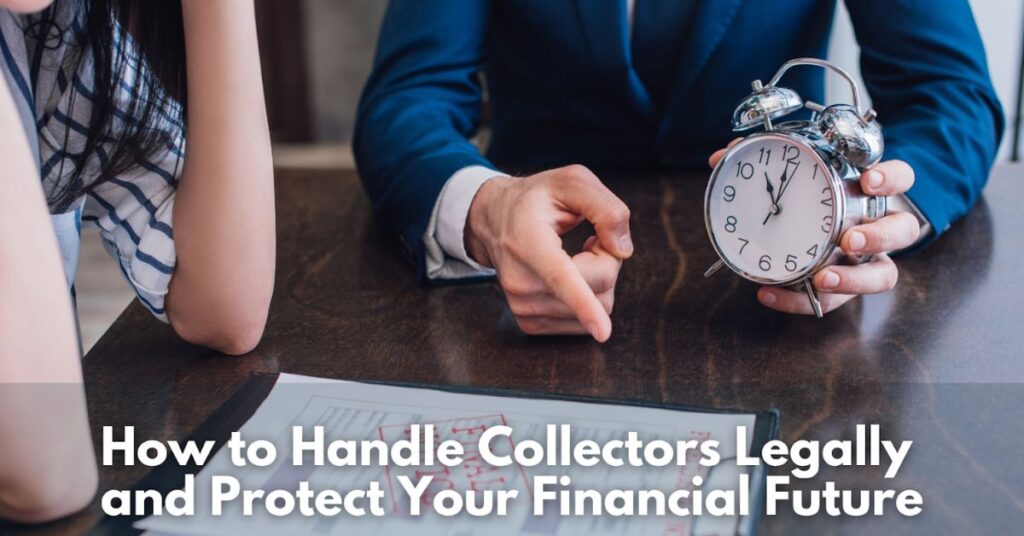Dealing with debt collectors doesn’t have to be overwhelming. By understanding your rights and the legal boundaries they must follow, you can take control of the situation and protect your financial future with confidence. Empowering yourself with the right knowledge ensures that you can navigate collection actions, avoid harassment, and maintain stability.
In this blog, we’ll explore your rights, provide steps to address any issues with debt collectors, and share strategies to help you safeguard your financial well-being.
Know Your Legal Rights Against Debt Collectors
It starts with knowing your legal rights for handling debt collectors, of course. Federal laws like the Fair Debt Collection Practices Act set straightforward rules, while some states provide even more protection.
The Fair Debt Collection Practices Act
The FDCPA was enacted in 1978 to eliminate abusive and deceptive collection practices by debt collectors. The FDCPA requires that debt collectors do the following:
- Identify themselves when communicating with you.
- Disclose that their purpose is to collect a debt.
- Provide details about the debt, including the amount and the creditor’s name.
Midland Funding is a debt buyer and collection agency that purchases charged-off consumer debt at a reduced price and attempts to collect it, often through lawsuits. If you’re facing a midland funding lawsuit, it’s crucial to ensure they adhere to FDCPA guidelines, as failure to do so can result in dismissal or a favorable ruling in your favor.
Contact Debt collectors are limited about when and how often to contact you. They cannot contact you before 8 a.m. or after 9 p.m. without your permission to do so, and they also cannot contact you at work without your permission. If you work for an employer that does not allow debt collector contact, so inform them.
State-Specific Protections
While the FDCPA provides strong protections, many states have additional laws that further restrict what collectors can do. Some examples include:
- In California, the Rosenthal Fair Debt Collection Practices Act extends protections to original creditors
- In Texas, debt collectors may not sue for debts beyond the statute of limitations, even if you admit to owing it.
These state-specific laws can provide more comprehensive protection, so it is important to familiarize yourself with the regulations in your area.
How to Deal with Debt Collectors Legally
Dealing with debt collectors requires a strategic approach. The steps below will ensure you remain in control while complying with the law.
Step 1: Validate the Debt
Confirm that the debt is valid: The most crucial step is validating that the debt is legitimate. Old debts with errors or passed statutes of limitation are usually what debt buyers, such as Midland Funding, purchase. Demand a debt validation letter within 30 days from the date they first contacted you. This must include:
- Name of the original creditor.
- Amount due.
- That the collective has the legal right to collect.
If the collector fails to provide this information, they must stop all collection efforts until they do.
Step 2: Document Everything
Keep a record of all communications with collectors, including:
- Dates and times of phone calls.
- Names of the representatives you speak with.
- Copies of letters and emails.
This documentation can serve as evidence if you need to dispute the debt or report violations.
Step 3: Set Boundaries to Stop Harassment by Debt Collectors
If they are harassing you, take action to stop it. You can:
- Write a “cease and desist” letter to them that instructs them to stop contacting you.
- Include the preferred method of communication. For example, you may indicate that you prefer written correspondence only.
Once they receive this letter, collectors may only contact you to confirm they have stopped collection efforts or to advise you of legal action.
Step 4: Negotiate or Dispute the Debt
A settlement can be negotiated as a method of resolving debt. Collectors usually accept partial payment to close an account. If you settle, request a written agreement before paying.
If you feel that the debt is invalid, dispute it. The Fair Credit Reporting Act requires credit reporting agencies to verify disputes and fix errors. Include supporting documents like payment receipts or letters from the original creditor.
Protecting Your Financial Future from Collectors
Debt collection issues will follow you for quite a long time. If you take proactive measures, you will be able to alleviate most of their effects and take care of your finances.
Budget and Repayment Plan
Debt might seem like it sometimes, but with a good plan, it can get a better way out. First, be realistic about income and expenditures. Find the area(s) you can cut back on to gain a few extra bucks for the debt obligations.
Non-profit credit counseling can advise you on setting up a reasonable repayment plan. They can negotiate with your creditors to come up with lower repayment rates or even waive fees altogether.
Track Your Credit Report
Collection accounts can beat credit where it’s dearest, obtaining loans or housing. That is why you should check your credit reports from time to time for any misleading information. You are entitled to one free credit report every year from each of the three major credit reporting agencies in the United States- Equifax, Experian, and Trans Union.
If there are errors discovered involving collections, file a dispute with the credit agency. You may be successful by adding your explanation to your supporting documents to make your position stronger.
Be Alert to Scams
Fake debt collectors exist. These usually cause trouble among consumers by threatening or confronting them. Verify all such debts before accepting any communication regarding it. If you believe you are getting scammed, do not hesitate to report it to FTC and your state attorney general for further action.
Responding to a Lawsuit
The debt collectors aren’t perceived as a threat to those who know how to fight in law and have a good defense. Here’s what to do:
- Do Not Ignore the Summons: Most of the lawsuits are visited by a default judgment against you. By this judgment, the collector may garnish your wages or attach your possible assets to recover the debt.
- Verify the Debt: Debt collectors should justify the debt, i.e., they must prove that they own the debt and also show that the amount claimed is correct.
- Consult with an Attorney: Many attorneys also offer free consultations on debt defense. Points attorneys consider include mistakes made while serving the papers or whether the cause of action is based on expired statute of limitations.
Many consumers are able to successfully fight back against lawsuits brought by Midland Funding and other debt buyers when they have a good defense.
Stopping Harassment by Debt Collectors
Harassment by debt collectors is not only infuriating, but it is also illegal. The FDCPA lays out specific remedies for such behavior.
Filing Complaints
If collectors violate your rights, you can file complaints with:
- The Consumer Financial Protection Bureau (CFPB).
- The Federal Trade Commission (FTC).
- Your state’s attorney general.
It gives detailed accounts of the violations, including dates and times and evidence of improper conduct.
Filing Lawsuits
Collectors can be sued under the FDCPA. A consumer may receive as much as $1,000 in statutory damages, in addition to awards for emotional distress or financial loss. Seek the counsel of a consumer protection attorney to pursue this.
FAQs
What can I do if a debt collector sues me, like Midland Funding?
Respond to the lawsuit immediately and prevent them from getting a default judgment. Get a hold of a debt-defensive attorney and evaluate your position in the possible actions you can take.
How to stop harassment by debt collectors without paying into debt?
I could write a letter telling them to cease and desist, and then they could only respond to that letter with whatever legal action they’re going to take or if they comply with my demand.
What are the essential legal rights I can claim from the collection agency to protect me from them in my future financial matters?
You have rights to dispute debts, to request verification, and to complain of violations under the FDCPA. Collectors are not allowed to misrepresent a debt, use abusive language, or harass you in any manner.







